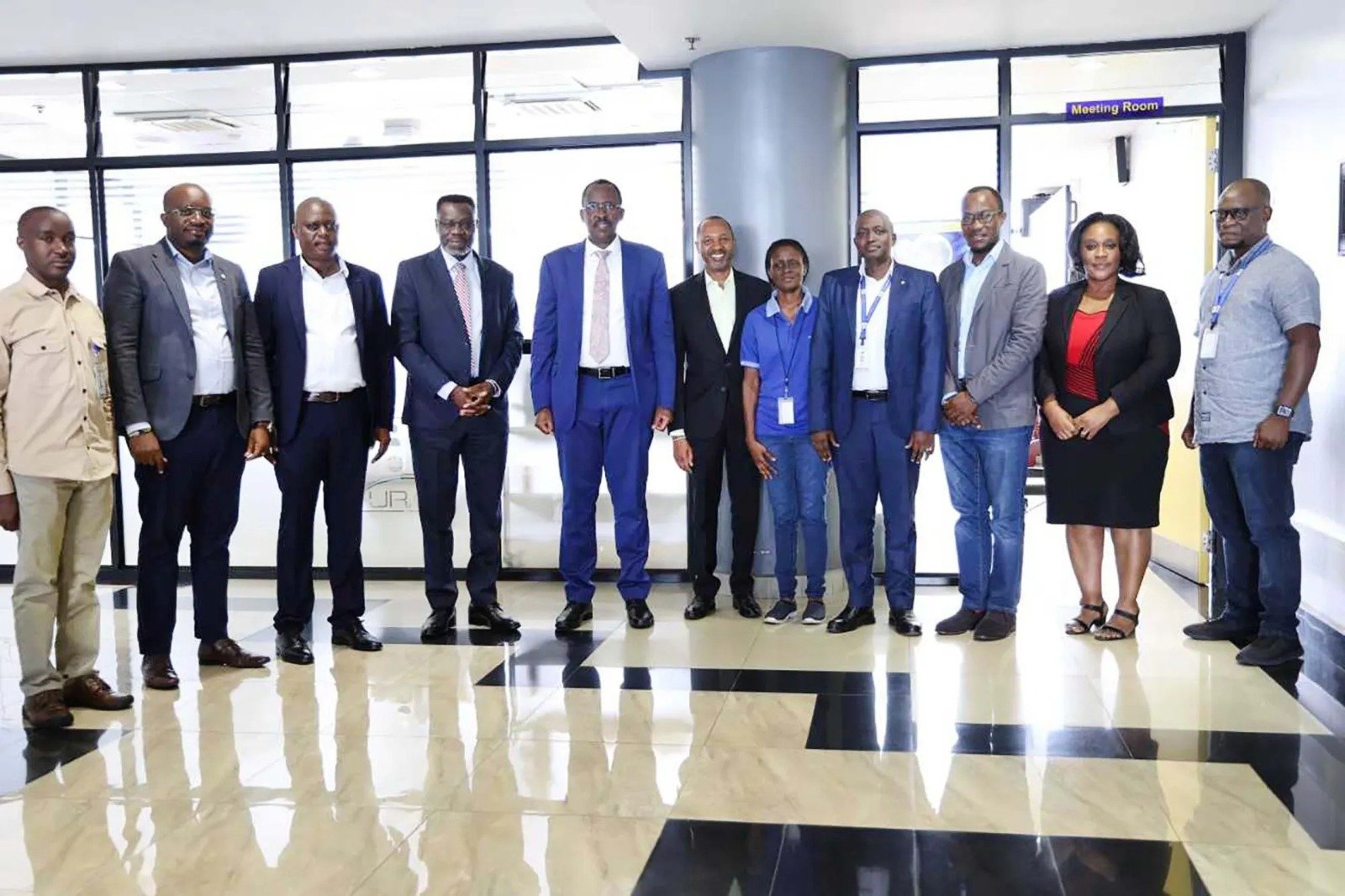URA, BAT move to tighten noose against contraband boosts DTS

URA and British American Tobacco (BAT) officials pose for a photo after a meeting held at URA headquarters
The British American Tobacco team led by Chris Achola, Cluster Head BAT East and Southern Africa met with URA to identify ways on curbing illicit trade in cigarettes in the East African region.
During the meeting held at URA headquarters, Nakawa BAT proposed different ways through which to curb the vice that include public destruction of all seized cigarettes, enforcement of the labelling requirements, implementation of Digital Tax Stamps (DTS) and enhancement of manufacturing and supply chain controls to curtail tax leakages.
Achola highlighted that the illicit trade in cigarettes has grown to 34.1% in Quarter 2 2023 from 15.8% in Q4 2019, saying, “In Uganda, we now have 34% incidence of illicit trade, which means one out of every three cigarettes smoked in Uganda is duty not paid, or is sold here illegally.”
He noted that this increase is alarming and calls for total attention from URA.
The Commissioner General John R. Musinguzi on ther other hand, commended the BAT team for the proposals in curbing illicit trade in cigarettes and pledged commitment to restrain the vice.
“We are concerned about revenue leakage and it came to our notice that the increase in smuggling of cigarettes is affecting you and our revenues,” he said.
He revealed that URA will very soon destruct all the seized cigarettes held at Nakawa, saying, “We shall place punitive penalties on whoever is caught with smuggled cigarettes so as to curtail the illicit trade in cigarettes.”
Musinguzi said that URA will engage the stakeholders in the manufacturing and supply chain of cigarettes before enforcement is implemented. He called on the URA enforcement team to impound all vehicles found transporting smuggled and forfeit them to State in a move to curb illicit trade in cigarettes.
Godson Mwesigye, the Assistant Commissioner Enforcement noted that URA will request manufactures of cigarettes in Uganda to batch the cigarette Bombas and provide URA with the batch numbers so as to curtail the illicit trade and further noted that URA will implement the track and trace solution in DTS.
The BAT team also applauded URA enforcement teams for the efforts in impounding smuggled cigarettes, requesting for collaboration to find a solution to the vice.
Launched in 2019, the Digital Tracking Solution (DTS)—commonly known as Digital Tax Stamps—is an initiative that is implemented by SICPA Uganda. The solution has been instrumental in improving tax transparency and supporting legitimate businesses.
Isaac Arinaitwe, Principal Economist at the Ministry of Finance, highlighted the program's impact, emphasizing its pivotal role in enhancing tax compliance and market integrity.
"The DTS has supported timely and improved accuracy in the declaration and assessment of VAT and excise duty. Deliberate enforcement activities and stamp monitoring have created a compliance culture with the new system rules among taxpayers," he said.
Arinaitwe further noted that digital tax stamps help tackle counterfeit and unlicensed goods, thereby protecting public health, enhancing product standards, and curbing illegal trade.
Data from the Ministry of Finance show that by the end of FY 2023/24, 1,249 taxpayers had registered for DTS, including 920 manufacturers and 329 importers. The program's impact extended to revenue gains and sector sustainability, generating UGX 16.17 billion from DTS analysis assessments, amendments, penal tax, and arrears. Enforcement efforts during this period led to Shs20.98 billion recovered through 1,038 seizures, benefiting the private sector by establishing a fairer, more predictable business climate.




